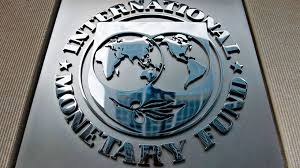HARARE – The 2019 Novel Coronavirus pandemic has dented any hopes of growth in 2020 with the International Monetary Fund also forecasting a gloomy global picture for the year. The Covid-19 pandemic is threatening to be more devastating than the Global Financial Crisis of 2008.
In the latest World Economic Outlook (WEO) of April 2020, the IMF said the global economy is expected to contract sharply by -3% in 2020 as a result of the pandemic, a contraction that is worse than the 2008-09 financial crisis. However the world is tipped to rebound to 2.4% growth.
Zimbabwe was not spared as the international financial institution revised downwards it’s 0.8% 2020 economic growth to a -7.4% in 2020. The country which is already in distress and with no international funding options as it owes most of the international financial institutions already and failing to repay them, sees no hope of stimulating it’s economy in the short to medium term.
With a country that earns most of it’s income from exporting metals, with depressed metal prices, income will be hard to come by thereby further increasing the probability of negative growth to the nation.
Sub Saharan Africa will realise negative growth of -1.6% weighed down heavily by middle income countries’ -3.0% growth, offsetting a 1.6% growth by Lower income countries’. A 4.1% growth is expected in 2021 led by both classes with a projected growth of 4.9% respectively.
South Africa Reserve Bank on Tuesday predicted a -6.5% growth for 2020, but the IMF predicted a -5.8% growth for the year and a growth of 4.0% in 2021. This is mostly to the fact that the economy is mostly open to shocks caused by other economies and it’s recent downgrade in borrowing ratings to junk status.
The uncertainty, volatility and the fast development of the virus require containment measures that affect economies, unlike other financial crises that stimulate economic activity so as to increase demand and revive the economy.
The IMF also said, “In a baseline scenario, which assumes that the pandemic fades in the second half of 2020 and containment efforts can be gradually unwound, the global economy is projected to grow by 5.8 percent in 2021 as economic activity normalizes, helped by policy support.”
The rebound in 2021 is said to depend critically on the pandemic fading in the second half of 2020, allowing the containment efforts to be gradually scaled back and restoring consumer and investor confidence.
According to IMF, the pandemic could prove more persistent than assumed in the baseline and the effects of the health crisis on economic activity and financial markets could turn out to be stronger and longer-lasting, testing the limits of central banks to backstop the financial system and further raising the fiscal burden of the coronavirus shock.
“Of course, if therapy or a vaccine is found earlier than expected, social distancing measures can be removed and the rebound may occur faster than anticipated. As of early April 2020, the path of the COVID-19 pandemic remains uncertain. Strong containment efforts in place to slow the spread of the virus may need to remain in force for longer than the first half of the year if the pandemic proves to be more persistent than assumed in the WEO baseline.” reads part of the outlook.
The bilateral lender urges strong multilateral cooperation to overcome the effects of the pandemic, including helping financially constrained countries facing twin health and funding shocks, and for channeling aid to countries with weak health systems.














